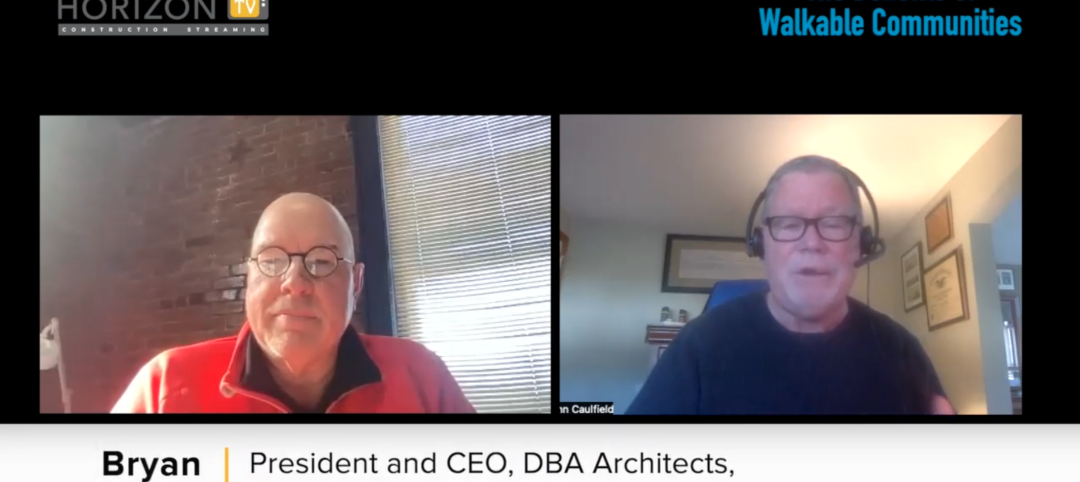Public libraries will avoid being relegated to the scrap heap of history in a digital age as long as they continue to serve as platforms for learning, creativity, and innovation that strengthen their communities.
That’s the conclusion of a new report “Rising to the Challenge: Re-envisioning Public Libraries,” which the Aspen Institute has produced in partnership with the Bill and Melinda Gates Foundation.
There are nearly 9,000 public library systems and 17,000 branches and outlets across the U.S. Nearly seven in 10 Americans say they have at least “medium” levels of engagement with their public libraries. And nearly a quarter of U.S. adults use their local libraries for Internet access.
“The public library is a key partner in sustaining the educational, economic and civic health of the community during a time of dramatic change, [and] there is already a significant physical presence and infrastructure to leverage for long-term success,” the report states.
As important, the library "is a core civil society institution, democracy’s 'maker space,'" the report asserts.
But as public libraries shift from being repositories for materials to platforms for learning and participation, their ability to provide access to vast amounts of content in all formats will be vital. “Libraries face two immediate major challenges in providing access to content in all forms,” the report says. “Being able to procure and share e-books and other digital content on the same basis as physical versions, and having affordable, universal broadband technologies that deliver and help create content.”
A 21st-century library will remain relevant only if it is built on three key assets: people, place, and platform. The report observes that libraries are “shifting from building collections to building human capital, relationships, and knowledge networks in the community.”
While a library is both a physical and virtual place, the report believes its physical presence “anchors it most firmly in the community.” But the library as a learning center is also becoming more of a destination, “a way station on the learning journey.” In that capacity the library in a digital age should also be “a virtual space accessible from anywhere 24/7.”
A library’s goal, says the report, should be to enable individuals and communities “to create their own learning and knowledge.” So a library “platform” needs to be adaptable to the individual’s needs. “The library as platform radically reshapes [its] daily activities, shifting away from the old model of organizing and ‘lending’ the world’s knowledge toward a new vision of the library as a central hub for learning and community connections.”
To be successful in a digital age, libraries, says the report, will require a different kind of access and distribution infrastructure, more sophisticated analytics “that will enable the library itself to become a “learning organization,” and the ability to scale themselves to facilitate innovation and competition.
The report recommends four strategic opportunities for action to guide libraries’ transformation: aligning their service to support community goals, providing access to content in all formats, ensuring the long-term sustainability of public libraries through greater attention to potential financial resources, and cultivating “leadership.”
But library professionals face several leadership challenges, such as taking advantage of digital tools; building the library’s capacity, which might benefit from exploring best practices outside the U.S.; thinking harder about succession planning; including trustee and “friend” groups in leadership development activities; and developing strategies that can keep pace with larger disruptive changes.
Libraries and their communities must also be watchful, and be prepared to respond to, several important developments and trends, including new technologies and their impact on a global information economy, online education, the boundaries of privacy and data protection, and “hyperconnected” societies.
Related Stories
Airports | Feb 28, 2023
Data visualization: $1 billion earmarked for 2023 airport construction projects
Ninety-nine airports across 47 states and two territories are set to share nearly $1 billion in funding in 2023 from the Federal Aviation Administration. The funding is aimed at help airports of all sizes meet growing air travel demand, with upgrades like larger security checkpoints and more reliable and faster baggage systems.
Seismic Design | Feb 27, 2023
Turkey earthquakes provide lessons for California
Two recent deadly earthquakes in Turkey and Syria offer lessons regarding construction practices and codes for California. Lax building standards were blamed for much of the devastation, including well over 35,000 dead and countless building collapses.
Sports and Recreational Facilities | Feb 27, 2023
New 20,000-seat soccer stadium will anchor neighborhood development in Indianapolis
A new 20,000-seat soccer stadium for United Soccer League’s Indy Eleven will be the centerpiece of a major neighborhood development in Indianapolis. The development will transform the southwest quadrant of downtown Indianapolis by adding more than 600 apartments, 205,000 sf of office space, 197,000 sf for retail space and restaurants, parking garages, a hotel, and public plazas with green space.
Architects | Feb 27, 2023
Hord Coplan Macht announces retirement of Founder/CEO Lee Coplan, FAIA, and names successor
Hord Coplan Macht, an award-winning integrated architecture, interior design, landscape architecture, and planning firm, announces the retirement of Founder and Chief Executive Officer Lee Coplan, FAIA. Lee leaves behind a long and celebrated career leading the practice over the last four decades while bringing innovative design strategies and leadership to the architecture and design community.
Libraries | Feb 26, 2023
A $17 million public library in California replaces one that was damaged in a 2010 earthquake
California’s El Centro community, about two hours east of San Diego, recently opened a new $17 million public library. With design by Ferguson Pape Baldwin Architects and engineering services by Latitude 33 Planning & Engineering, the 19,811-sf building replaces the previous library, which was built in the early 1900s, damaged by a 7.2 earthquake that struck Baja California in 2010, and demolished in 2016.
Architects | Feb 24, 2023
7 takeaways from HKS’s yearlong study on brain health in the workplace
Managing distractions, avoiding multitasking, and cognitive training are key to staff wellbeing and productivity, according to a yearlong study of HKS employees in partnership with the University of Texas at Dallas’ Center for BrainHealth.
University Buildings | Feb 23, 2023
Johns Hopkins shares design for new medical campus building named in honor of Henrietta Lacks
In November, Johns Hopkins University and Johns Hopkins Medicine shared the initial design plans for a campus building project named in honor of Henrietta Lacks, the Baltimore County woman whose cells have advanced medicine around the world. Diagnosed with cervical cancer, Lacks, an African-American mother of five, sought treatment at the Johns Hopkins Hospital in the early 1950s. Named HeLa cells, the cell line that began with Lacks has contributed to numerous medical breakthroughs.
Arenas | Feb 23, 2023
Using data to design the sports venue of the future
Former video game developer Abe Stein and HOK's Bill Johnson discuss how to use data to design stadiums and arenas that keep fans engaged and eager to return.
Museums | Feb 22, 2023
David Chipperfield's 'subterranean' design wins competition for National Archaeological Museum in Athens
Berlin-based David Chipperfield Architects was selected as the winner of the design competition for the new National Archaeological Museum in Athens. The project will modernize and expand the original neoclassical museum designed by Ludwig Lange and Ernst Ziller (1866-1874) with new spaces that follow the existing topography of the site. It will add approximately 20,000 sm of space to the existing museum, as well as a rooftop park that will be open to the public.
Multifamily Housing | Feb 21, 2023
Watch: DBA Architects' Bryan Moore talks micro communities and the benefits of walkable neighborhoods
What is a micro-community? Where are they most prevalent? What’s the future for micro communities? These questions (and more) addressed by Bryan Moore, President and CEO of DBA Architects.



















